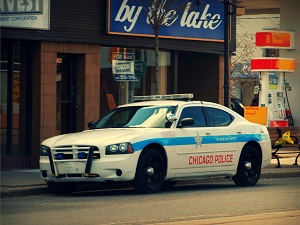Court Says Cops Can't Testify in Case After Destroying Footage of DUI Arrestby Tim CushingTechdirt Feb. 26, 2016 |
Popular 
Rep. Randy Fine: Pro-Palestine Movement Are 'Demons' Who 'Must Be Put Down by Any Means Necessary'

ADL Responds to DC Shooting With Call to Deplatform Twitch Streamer Hasan Piker

Israeli PM Netanyahu: Trump Told Me 'I Have Absolute Commitment to You'

Trump Confronts South African President on White Genocide

CNN: U.S. Officials Say Israel Preparing Possible Strike on Iran
  They like automatic cameras that record license plate and location data. They like surveillance cameras aimed at citizens around the clock. They even like dashcams and body cams, provided the released footage is limited to exonerating officers of wrongdoing. They like automatic cameras that record license plate and location data. They like surveillance cameras aimed at citizens around the clock. They even like dashcams and body cams, provided the released footage is limited to exonerating officers of wrongdoing.What they don't like are cameras that don't show their side of the story. A camera is inherently trustworthy -- much like a confidential informant -- until it isn't, at which point any footage captured is claimed to be devoid of "context" or unable to show "the whole picture." In some cases, the cameras don't show anything at all. Sure, the footage may have been available at some point. But it's suddenly missing when the defense needs it. In Illinois, this mysterious lack of footage has resulted in an exoneration. A motorist accused of drunk driving walked away after cops in Chicago, Illinois refused to hand over video evidence of the incident. In a ruling last month, the Illinois Appellate Court said Richard Moravec was entitled not just to any dashcam videos of his arrest, but also relevant footage from the city's network of surveillance devices known as "police observational devices" or POD cameras.Chicago has lots of "PODs" running 24 hours a day and monitored by officers. (For extra fun, scroll down the page and read the section entitled "POD Success Stories.") All footage is saved for two weeks. Obviously, if the footage is central to a criminal prosecution, the footage is supposed to be saved until the case is concluded. But when this motorist challenged his arrest, the footage suddenly couldn't be found, despite his lawyer asking for the footage to be turned over before the two-week retention period ended. When asked for the footage, a host of technical issues appeared out of nowhere. A Chicago police officer stopped Moravec at the intersection of Thomas Street and Western Avenue in Chicago, a location in sight of three separate police surveillance cameras. Police officials told Moravec's attorney that no dashcam video of the arrest had been found and that video taken at the police station was unavailable due to "technical issues with the video system." Finally, the surveillance camera footage had allegedly been overwritten.The driver wasn't found not guilty, but in light of the Chicago PD being unable to produce the recordings, the presiding judge sanctioned the department by forbidding the officers involved from testifying for the prosecution. "Our word against yours" doesn't mean nearly as much when those words aren't allowed in the courtroom. Of course, the Chicago PD felt this was too harsh and objected to the judge's sanctions, claiming it was "too heavy" in relation to the apparent misdeed. The judge disagreed. "The correct sanction to be applied for a discovery violation is a decision appropriately left to the discretion of the trial court, and its judgment shall be given great weight," Justice Simon wrote. "The trial court gave due consideration to the fact that both the state and the Chicago police department failed to preserve the videos, even though they were timely notified to do so... Therefore, the trial court did not abuse its discretion in precluding the testimony of the police officers when the state committed a discovery violation."This is a heartening decision considering the number of cameras in use by Chicago police officers. The granting of the defendant's motion for sanctions specifically notes that a lack of footage -- for whatever reason -- should be construed against the state, rather than accepted as something beyond anyone's control. Following the parties’ oral argument, the trial court granted defendant’s motion in limine to prevent the testimony of the police officers and stated that “without there being explanation as to a legitimate basis for the tape not being available, that has to be construed against the State.” The trial court asserted that it granted defendant’s motion in limine and for sanctions pursuant to Kladis, a case where the supreme court upheld the judgment of the appellate court that granted the defendant’s motion for sanctions and barred the State from presenting testimony as to the events surrounding the defendant’s arrest after it was discovered that the State destroyed the police squad car’s recording of the defendant’s arrest.This is where the burden should fall. If police departments are going to deploy an increasing amount of surveillance equipment, any lack of relevant footage should be law enforcement's burden to bear. If the agency decides it's not worth the time or money to repair malfunctioning cameras, then it should have to deal with the consequences of de-prioritizing surveillance equipment that mysteriously seems to function best only when it's exonerating officers or being presented as evidence by prosecutors. |



